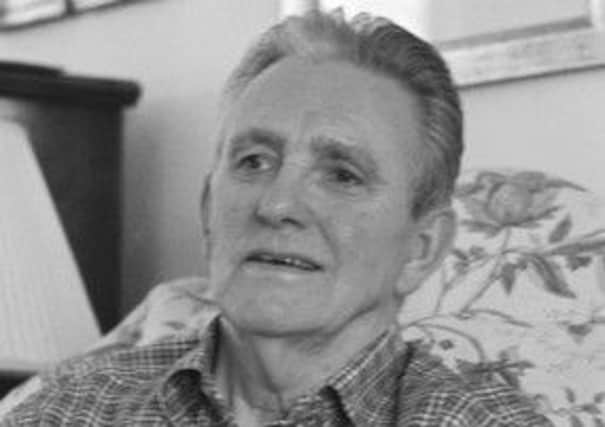Obituary: Ian McIntyre, broadcaster


Ian McIntyre worked for the BBC for more than a quarter of a century and, as controller of Radio 4, was involved in many controversial changes in the schedules which infuriated his staff and the listeners. As a result of the cuts and his somewhat abrasive management style, McIntyre was known within the corporation as Mac the Knife.
In 1978 he was moved to Radio 3, which proved no easier, and McIntyre caused much distress in the music department when he wrote an internal paper recommending the disbandment of several of the BBC orchestras.
Advertisement
Hide AdAdvertisement
Hide AdThe unrest resulted in musicians taking industrial action and the start of the Proms being delayed.
Ian McIntyre was the son of a taxidermist, and although he was born in Aberdeenshire was educated in the South. He read French and Russian at St John’s College, Cambridge and was president of the union in 1953. He spent a year at the College of Europe in Bruges, did his National Service in the Intelligence Corps, and joined the BBC in 1957.
McIntyre then worked for the Conservative Party in Scotland as director of information (1962–65) and was in charge of press communications during the vital by-election in Perth and Kinross in 1963.
Sir Alec Douglas-Home had to win so that he could return to the Commons as Prime Minister. McIntyre admired Sir Alec but admitted he “was inclined to say whatever came into his head”.
McIntyre fought Roxburgh, Selkirk and Peebles for the Tories in 1966 against David Steel. He failed but did reduce Steel’s majority substantially.
McIntyre returned to the BBC and, in 1968, was asked to present a new topical series concentrating on current affairs.
The programme was Analysis and McIntyre was given the brief “to go beyond the bien pensant agenda”. More practically, he focused on the events and views that shape public opinion.
The programme commanded an influential audience and McIntyre interviewed Prime Ministers Edward Heath and Harold Macmillan, as well as the Shah of Iran. McIntyre’s quiet, reassuring voice, allied to his informed questioning, marked him out as a broadcaster of real quality.
Advertisement
Hide AdAdvertisement
Hide AdMcIntyre remained the presenter until 1976 when he was appointed controller of Radio 4 with a brief to streamline the station and radically altered its news coverage. He appointed the first female newsreaders and cut the Today programme in two, placing a light magazine show in the middle. The outcry was so intense that McIntyre returned to the usual format within a year.
Worse, he moved the treasured Alistair Cooke’s Letter From America from its traditional Sunday morning slot to Sunday evening. Despite (he thought) clearing the move with Cooke, McIntyre was called to a showdown with the director general.
He then got another Radio 4 sacred cow in his sights. McIntyre felt The Archers needed revitalising. He moved the “everyday story of country folk” from 7pm to 6:45pm and the public protested vehemently.
“Listening to The Archers was rather like going to church on Sunday,” McIntyre admitted.
His cuts, alterations and changes to the schedules were not well received – hence the unfortunate nickname.
He later introduced a listener feedback programme called Disgusted, Tunbridge Wells. He moved to become Controller of Radio 3 in 1978. It was somewhat calmer but he was immediately confronted with many contentious issues – not least the demands from the governors to cut costs. Hence the discussion document concerning the axeing of at least one BBC orchestra.
He had to contend with competition from a plethora of music stations and the emergence of Classic FM. This resulted in criticism that the station was being dumbed down, with too many populist programmes.
McIntyre reduced the introductions prior to each piece of music and tried to lighten the rather stuffy image the station had garnered over the years.
Advertisement
Hide AdAdvertisement
Hide AdIn 1987, his position was merged with the post of controller of music. McIntyre applied for the job but was unsuccessful. It went to John Drummond, former director of the Edinburgh Festival. After the BBC, McIntyre was an associate editor of The Times and wrote biographies of Robert Burns, the artist Sir Joshua Reynolds and John Reith, the BBC’s first director general.
His biography on Burns (Dirt and Deity) was researched in detail – McIntyre wanted to dig behind the well-known accepted facts. He studied the Burns letters and concluded: “Here was a mind of great quality… he must have been a most tremendous conversationalist, very sharp, bright, and amusing.”
McIntyre, always courteous and kindly, was a devoted family man and nursed his wife, Leik Sommerfelt McIntyre, through Parkinson’s disease. He remained a proud Scot and returned often, he admitted, “to breathe some good clean air”. His wife died in 2012. He is survived by two sons and two daughters.